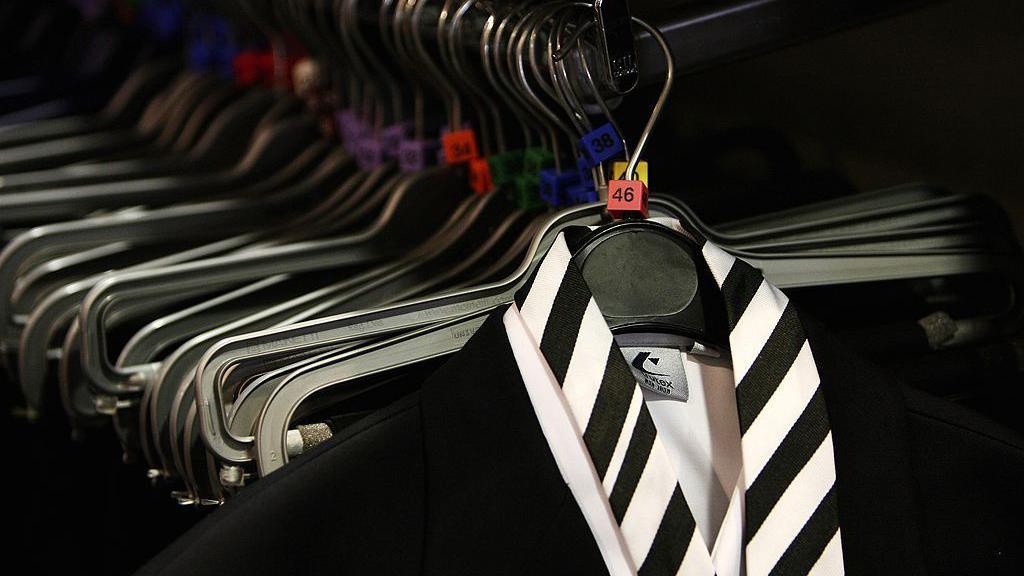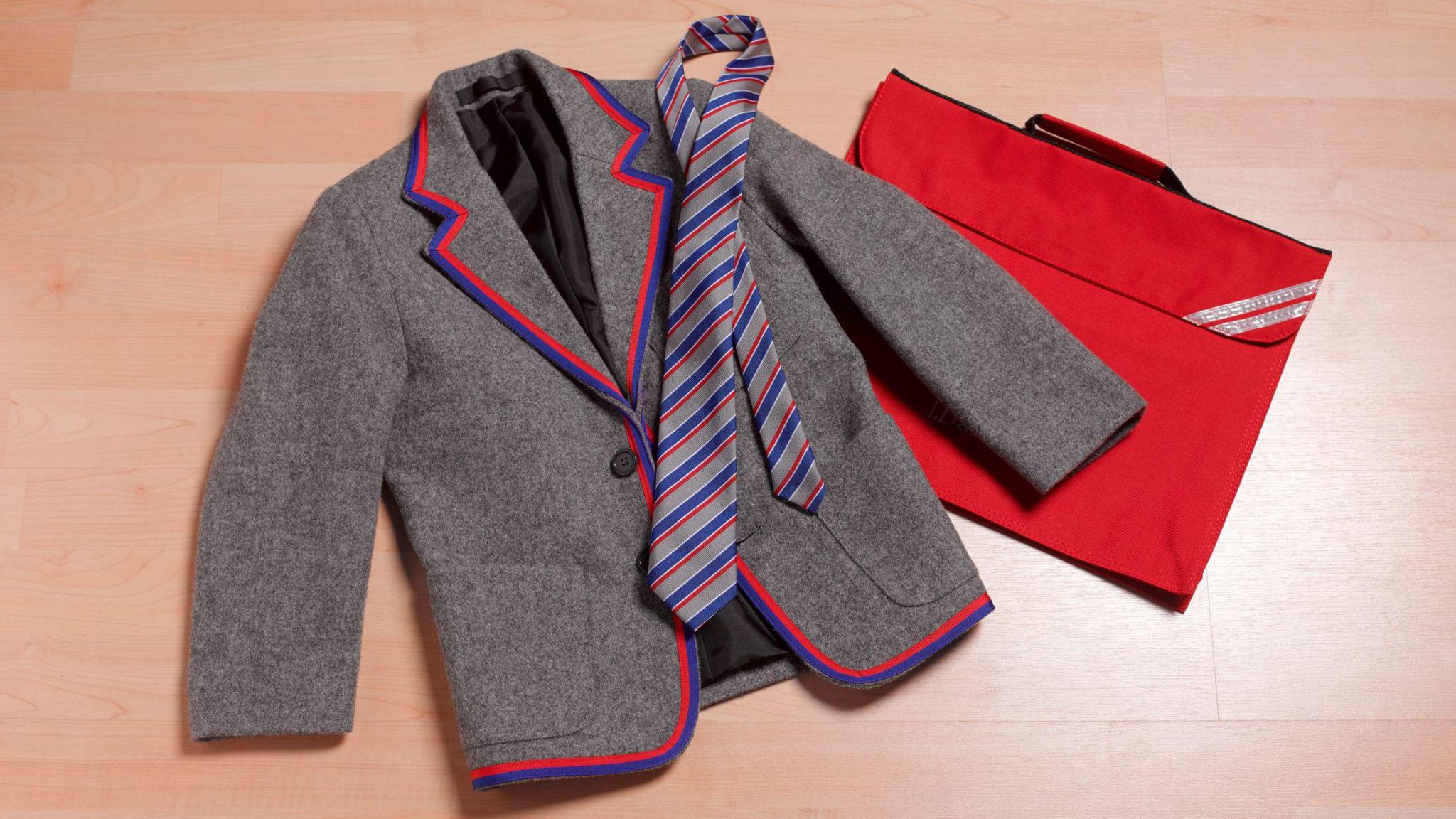Branded uniforms are a 'financial drain' on parents

Naomi McBurney believes action needs to be taken against uniform prices
- Published
There is significant support for a new law to make all school uniforms affordable, according to a consultation on the proposed new law.
It attracted about 7,500 responses from young people, parents and organisations.
More than three-quarters of respondents were in favour of making school uniforms affordable by law.
But there were concerns over whether a "cost cap" on uniforms would work.
Campaigner and Alliance councillor Naomi McBurney told BBC News NI: "Branded sports kits are a financial drain.
"Parents and guardians are at the end of their tether."
The Department of Education (DE) issued guidance in 2018 which "advised" schools to keep uniform costs to a minimum.
But the Education Minister Paul Givan has said he intends to bring forward a School Uniforms Bill which will require schools to keep uniform costs affordable.
The results of the consultation on the proposal have been published by the Department for Education (DE).
Opposition to branded PE kits
People who responded said branding and logos on school uniforms were a particular problem.
Some said having to buy a branded uniform or with a school logo made uniforms more expensive.
There was also some opposition to schools requiring pupils to wear PE kit made by a particular brand.
Uniforms being "generic" and "widely available in a range of stores" was a common view.
But some respondents said branded uniform was "often better quality and harder wearing".
Some questioned whether school uniforms were needed at all, calling them "outdated and unnecessary" and "out of touch with modern society".
Others said the "rationale" for uniforms preparing children for the world of work was "no longer relevant".
Other respondents said that girls should have the option to wear trousers and "should not be forced to wear skirts".
'Uniforms add extra pressure to families'

Emma Morgan said her son's school is "flexible" with school uniforms but that is not the case for all schools
Some parents also called for more flexibility on uniforms, especially for children with special educational needs (SEN).
Emma Morgan is a mother and a board member of SEN Reform NI.
She told BBC News NI that with the costs of sending SEN children to school, uniforms added "extra pressure" on families.
"I have one member of our group who bought her son's full school uniform that he really wears because of his needs.
"The next year they changed the uniform and she had to buy another full school uniform."
Emma's said her experience with uniforms at her son's school had been "flexible".
"They have made it child centred, he doesn't like to wear the school trousers or the jumper and they are okay with that.
"They are looking at it from an empathetic view point."

School rules being too strict was mentioned by responders and that no child should be disciplined if they could not afford the correct uniform.
Ties were also called "unnecessary and a potential safety hazard".
Among the suggestions for keeping costs low were to:
Remove the need for school blazers
Ban branded PE kits
Have a range of shops where uniforms could be bought
But the Competition and Markets Authority (CMA) told the department that while it supported measures reducing the number of branded items in schools, price caps could have "unintended consequences".
It said a cap could reduce choice, impact the quality of goods or lead to higher prices if set too high.

About 7,500 responded to a consultation for a new law to make all school uniforms affordable
Ms McBurney told BBC News NI: "I am in support of the price cap, it is really important."
She said it was great that so many responded to the consultation.
"The big takeaway is that action needs to be taken against uniform prices," she said.
Others also warned that a price cap could place "unnecessary and additional administrative burden on schools."
In a statement, Givan said once the new laws were in place: "It will remain a matter for schools to determine whether to have a uniform and, if so, what that uniform will be.
"What the legislation will do is work in tandem with strengthened, statutory guidance to ensure that affordability is transparent and at the centre of school uniform policies."
It is not yet clear when the new law will be introduced in the assembly.
Related topics
- Published31 July 2021

- Published5 August 2024

- Published5 March 2024
